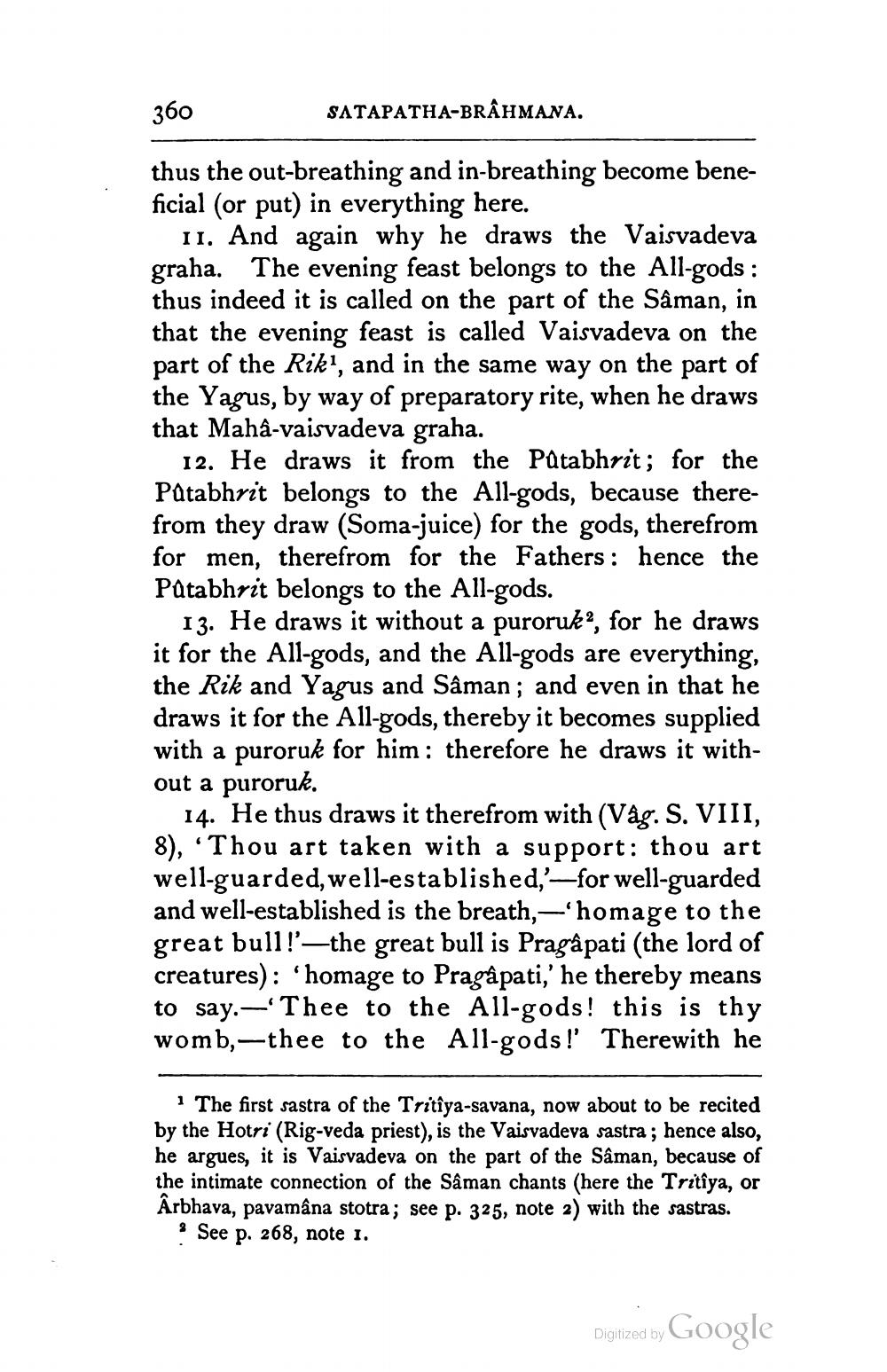________________
360
SATAPATHA-BRAHMANA.
thus the out-breathing and in-breathing become beneficial (or put) in everything here.
11. And again why he draws the Vaisvadeva graha. The evening feast belongs to the All-gods : thus indeed it is called on the part of the Saman, in that the evening feast is called Vaisvadeva on the part of the Rik1, and in the same way on the part of the Yagus, by way of preparatory rite, when he draws that Mahâ-vaisvadeva graha.
12. He draws it from the Patabhrit; for the Patabhrit belongs to the All-gods, because therefrom they draw (Soma-juice) for the gods, therefrom for men, therefrom for the Fathers : hence the Patabhrit belongs to the All-gods.
13. He draws it without a puroruka, for he draws it for the All-gods, and the All-gods are everything, the Rik and Yagus and Saman; and even in that he draws it for the All-gods, thereby it becomes supplied with a puroruk for him : therefore he draws it without a puroruk.
14. He thus draws it therefrom with (Våg. S. VIII, 8), “Thou art taken with a support: thou art well-guarded, well-established,'--for well-guarded and well-established is the breath, homage to the great bull!'—the great bull is Pragâpati (the lord of creatures): 'homage to Pragâpati,' he thereby means to say.—'Thee to the All-gods! this is thy womb,—thee to the All-gods! Therewith he
1 The first sastra of the Tritîya-savana, now about to be recited by the Hotri (Rig-veda priest), is the Vaisvadeva sastra; hence also, he argues, it is Vaisvadeva on the part of the Saman, because of the intimate connection of the Sâman chants (here the Tritîya, or Arbhava, pavamâna stotra; see p. 325, note 2) with the sastras.
See p. 268, note 1.
Digitized by Google




